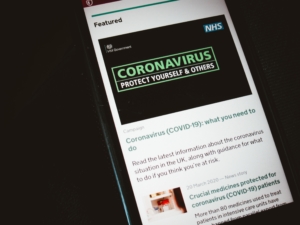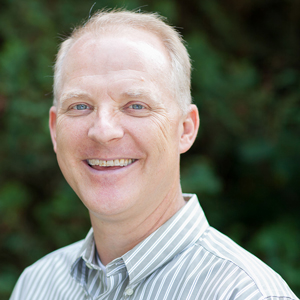This is the third article in a three-part article series, reflecting on COVID-19 and what I believe the situation is revealing to us regarding human nature. A few weeks ago, I wrote an article entitled A Christian Counselor’s Contemplations on COVID-19; a reflection piece regarding the current COVID-19 situation and some of the deeper questions of life that I believe it’s forcing us to face.
 After doing so, I felt the Lord telling me to write on something else that this global situation is clearly teaching us — that is, humanity’s need for power and control. In COVID-19: Revealing the Seduction and Illusion of Power and Control, we took an in-depth look into power and control, why people seek it, and touched on how COVID-19 is impacting that overall drive.
After doing so, I felt the Lord telling me to write on something else that this global situation is clearly teaching us — that is, humanity’s need for power and control. In COVID-19: Revealing the Seduction and Illusion of Power and Control, we took an in-depth look into power and control, why people seek it, and touched on how COVID-19 is impacting that overall drive.
We end our discussion by asking and hopefully answering the practical questions. What do we realistically do in response to COVID-19? What can we do to make things better for ourselves and others?
Tips for Coping with the COVID-19 Pandemic
If there is one thing that COVID-19 is revealing to us, it’s the fact that we aren’t as in control of things as we’d like to delude ourselves into thinking we are. Let’s wrap up our discussion by looking at what we can and what we definitely can’t control. Here are some practical tips, helpful attitudes, and some good things to keep in mind …
Get Outside and Enjoy God’s Creation
People who winter over in Antarctica often experience a very interesting condition called T3 Syndrome (or Winter Over Syndrome). Due to the extreme cold and harsh weather conditions, they are forced to spend the vast majority of the 6 months they are stationed there indoors. There are long, dark nights during winters in Antarctica that may last for weeks at a time.
What are the effects on people who spend long periods of time indoors? They can experience things such as forgetfulness, cognitive impairment, mood disturbances, insomnia, depression, and irritability. They may have problems remembering simple things like phone numbers they’ve known their whole lives, what letter comes after N, and so on.
Spending extended periods of time in close proximity with the same people day after day, tempers often get short. Lack of privacy, gossip, and exchanges of harsh words can create an environment that is ripe for conflict.
Does all of that sound familiar? With COVID-19 and the Shelter in Place order that’s currently in effect in many places, I would say that describes the conditions in a lot of homes throughout the world right now.
Here in the Pacific Northwest, we can understand and appreciate that, as a lot of us know the reality of Seasonal Affective Disorder. There are actually physiological reasons for this, as neurotransmitter levels in the brain become altered due to lack of sunlight, fresh air, and overall physical activity.
So, turn off the TV, the Xbox, all of the electronics. Force yourself and those you love to get out of bed, out of your PJ’s, get dressed, and get outside. Regular, good old-fashioned exercise and physical activity in the great outdoors is one of the best things you can do for your overall long-term mental health.
Make and Maintain a Regular Routine and Structure
COVID-19 has obliterated the schedules of a lot of people right now. Many people are out of work and kids are home, so the natural tendency would be to throw schedules out the window. If that’s you, let me encourage you to resist doing that.
We know from modern studies that the brain and our bodies function best when we keep and maintain a regular routine. This means consistently going to bed at a certain time, getting up at a certain time, eating breakfast at a certain time, and so on.
Make daily and weekly goals for yourself and your kids. Having said that, especially at this time with the Shelter in Place in effect, we have to be realistic, be a bit more flexible, and lower our current expectations — especially with our kids. At the moment, it’s more about battening down the hatches and focusing on surviving and getting our families through this storm.
Get Enough, but Not Too Much Sleep
The average adult needs between 7 to 9 hours of sleep per night. Teenagers need 10 or 11 hours, and school-aged children, around 9-12 hours. Under periods of stress and strain, our bodies may need more than that. Here’s the other side of the coin, though — if we get too much sleep, our bodies can actually feel more tired, as our routine gets off (see previous point).
Tantalize Your Senses
 Modern research has confirmed how reliant upon our five main senses we are (Sight, Touch, Hearing, Taste, and Smell). They are how we know and experience the world. Our memories and feelings (both good and bad) are tied to sensory experience.
Modern research has confirmed how reliant upon our five main senses we are (Sight, Touch, Hearing, Taste, and Smell). They are how we know and experience the world. Our memories and feelings (both good and bad) are tied to sensory experience.
People who are stressed and/or depressed can experience some measure of relief through stimulation and engagement of the senses. That’s especially true if we can engage several senses at once.
Here are a few suggestions:
- Watch a good comedian or comedy. (They say laughter is the best medicine. That’s often quite true.)
- Drink a nice hot cup of tea, cocoa, apple cider, or some other pleasing, aromatic drink.
- Play with your pet.
- Take a nice hot shower.
- Give and received hugs and attention from a loved one. (Touch is a deep emotional need).
- Enjoy your favorite foods.
- Breathe in pleasing smells, such as potpourri, scented candles, essential oils, or potted plants and flowers.
- Listen to uplifting music (especially Christian music).
- Read uplifting Scripture verses.
- Look at or create artwork (drawing, painting, sculpting, etc.)
- Read and write (stories, journaling, etc.).
Jesus told us to “Love your neighbor as yourself” (Luke 10:27-28). We often don’t hear that last part — He said, “as yourself.” In other words, take care of yourself and learn to exercise good self care. Why don’t you take the Lord’s advice by taking some time for yourself, doing one or more of the things suggested above (or some of your own)?
Re-Adjust Your Perspective of What You Choose to Focus Upon
So much of our success and failure in life depends upon how we choose to look at and respond to our circumstances. That is absolutely true of the current COVID-19 situation as well.
Take, for example, the Japanese bombing of Pearl Harbor on December 7, 1941. Over 3,800 Americans lost their lives. A total of 12 ships were either sunk or beached, 9 others were damaged, over 160 aircraft were destroyed, and 150 other aircraft damaged.
Admiral Chester Nimitz later surveyed the damage and said that the U.S. was very lucky. Lucky?! Why? He noted that the Japanese made three key mistakes. They didn’t destroy the dry docks at all — since they didn’t, the ships could be repaired. Secondly, he noted that every drop of fuel that the U.S. had in the entire Pacific was located in a fuel depot a mere five miles away (that was untouched). Lastly, he noted that the attack occurred on a Sunday. If it had happened on a normal weekday, those ships would have been filled with U.S. sailors. Casualties would have been more like 38,000 rather than 3,800. So much of life is just like that — it all depends on how you choose to look at it.
If you look at a beautiful painting long and hard enough, you will likely find apparent flaws. It’s funny that the more we focus on that flaw, oftentimes that’s all we tend to see. We focus on the 1% (that seems to be wrong) and miss the overall (99%) big picture that’s right and beautiful.
Do you focus more on the number of deaths from COVID-19, or the numbers of those who recovered?
In Matthew 7:25-34, Jesus says that we should not worry. Why, exactly? It’s about having faith in God and His provision for us. Do we choose to worry like the pagans (who run around after the things they need in their own strength) — choosing to focus on trying to do things in our own strength — or do we choose to focus on trusting God?
The Apostle Peter was successful walking on the water, but only when he was focusing on Jesus. He started to sink when he took his focus off Him and instead focused on the situation, his own human limitations, his fears, and his fears and doubts (Matthew 14:28-31). Jesus constantly says that we are to put our focus on Him, to seek His strength, and that we should learn to see things as He does.
Do you want to choose to spend most of your time focusing on the things that are “wrong” in life, or the many blessings that God has given you? Are you going to focus on yourself and doing things your own way in your own strength, or upon Jesus? (John 3:14-18)
Escape the Monkey Trap by Learning to Let Go
In parts of Asia, hunters have been trapping monkeys for centuries using a simple but ingenious method. Hunters will take a gourd, cut a hole in the bottom the size of a monkey’s hand, and place a piece of fruit inside.
The monkey comes along, sees the piece of fruit, and grabs it — but when it tries to pull its hand out, its fist is too big for the hole. It’s stuck. It will scream, wail, and pull with all its might … but it won’t let go of the fruit. If it would just let go, the monkey would be free.
 So many people are just like that monkey. They trap themselves by holding onto things that they should let go of. Ask God to show you how to start to let go of the ever elusive idol of perfection. Ask God to show you how to begin to let go of pain, hurt, anger, hatred, bitterness, and so on — they will only ensnare and destroy you in the end. If that’s you, let me encourage you to nail those things to the cross and leave them there.
So many people are just like that monkey. They trap themselves by holding onto things that they should let go of. Ask God to show you how to start to let go of the ever elusive idol of perfection. Ask God to show you how to begin to let go of pain, hurt, anger, hatred, bitterness, and so on — they will only ensnare and destroy you in the end. If that’s you, let me encourage you to nail those things to the cross and leave them there.
Realize the Limits and Real Life Costs of Absolute Control
The biggest reason I’ve been concerned about the “shelter in place” order is because I know what many people tend to do under stress. The more anxious people become, the more controlling, paranoid, delusional, forceful, and hurtful some tend to become. The more fearful they become, the more controlling they become.
This tendency is especially true for many women. Take a look at the consequences God pronounced upon Eve for her sin — “Your desire will be for your husband and he will rule over you” (Genesis 3:16). That phrase does not speak of sexual desire; it speaks of an ongoing battle for power and control. There are a lot of fearful women out there whose response to fear is to exercise control.
The same tendency is also true for those who grow up in abusive homes and for those who felt like life was chaotic and out of control. For many men and women, life felt out of control as a child. They felt unsafe. They felt weak, powerless, vulnerable, and scared as children.
As adults, they unconsciously hold on to those childhood feelings and memories, which usually only bubble up to the surface during times of stress and distress. Those feelings are highly threatening to them, so they now control as a way to remain safe and to keep those feelings away. They never had any power as children, and now they’re hungry for power and to seek to exercise it as adults.
What happens as a result? The people they love and care about want to run away, become distressed, and upset. The tighter they grip, the more they end up suffocating the ones they love. Eventually, the caged bird stops singing. All of the happiness, laughter, and joy in the house gets sucked out, replaced by bitter tears.
Too many parents make the mistake of trying to intimidate their children, yelling at them, using force, guilt tripping them, and so on, in an attempt to instill in them the behavior that they want to see.
The question though, is: Do you want compliant kids who will merely do the right thing “because I say so” (and then sneak around and do what they want when your back is turned) … or do you want to raise confident, capable, well adjusted young men and women who can make wise decisions for themselves?
2 Corinthians 3:17 says, “Now the Lord is the Spirit, and where the Spirit of the Lord is, there is freedom.” If you love someone, learn to let them go. Allow the people you love the freedom to make the decisions (the good ones as well as the bad ones) they’re going to make and to reap the natural consequences of their choices. After all, that’s exactly what God does (Deuteronomy 11:26-28; 30:15-20).
For more in depth discussion on parenting specifically, see the following articles:
I Have a Difficult Child. What Do I Do? (Part 1)
I Have a Difficult Child. What Do I Do? (Part 2)
Learn to Accept Responsibility for and Attempt to Change ONLY the Things Which Are Within Your Control
As stated before, power and control are normal emotional needs that all people have. People need to feel like they have a semblance of power and control over their lives. Two key problems generally exist when it comes to this. Either people try to exercise power over things they don’t have any control and can’t ever possibly control, or they feel powerless and like they don’t have any power and control over anything (even themselves).
They either try to accept responsibility for things that they shouldn’t, or they believe that others are basically in control of their lives. For those who feel like they should be able to control everything, consider this:
Let’s say you have a defiant, angry child. You want to send them to their room. Using only the power of your own mind and thoughts can you will that child to go? If you think hard enough, can you shut their mouth and make them turn around, walk to their room, and shut the door?
Such an exercise makes you quickly realize that you as a parent are in charge of your child, not in control. There is a huge difference between being “in charge” and being “in control.” As a parent, you’re not in control of how your child chooses to act. But, as a parent you are absolutely in control of how you choose to respond. Even choosing to do nothing is a choice.
 Consider some of the world’s problems such as pollution or global warming. Can you singlehandedly fix those problems yourself? I may believe that I’m Superman and can fly, but I can promise you that if I throw myself out of a 6th floor window, reality will tell me really quickly that my belief was a delusion. There are limits to what I can actually do.
Consider some of the world’s problems such as pollution or global warming. Can you singlehandedly fix those problems yourself? I may believe that I’m Superman and can fly, but I can promise you that if I throw myself out of a 6th floor window, reality will tell me really quickly that my belief was a delusion. There are limits to what I can actually do.
For those who are at the opposite extreme and believe they have no power over anything, I would you ask you to consider this:
Viktor Frankl was a Jewish psychiatrist and a survivor of the Holocaust. In his book, Man’s Search for Meaning Frankl talks about how the Nazis literally took away everything from the Jews — everything imaginable, but there was one thing they could never take away.
Frankl said, “Everything can be taken from a man but one thing — the last of human freedoms — to choose one’s attitude in any given set of circumstances, to choose one’s own way. In other words, he realized that the one thing no one could never take away was one’s attitude. The thing that the Nazis could never take away was how a person chose to respond. Do you choose to hope or choose to despair?
There is only one person whose thoughts, feelings, and actions you are in control of — yourself Take responsibility for yourself and the things under your direct influence and control. If there is one thing COVID-19 is teaching us, it’s this.
Establish and Maintain Zones of Control and Areas of Sovereignty
One of the most important things we can do in life for the overall health of everyone is to seek to establish and clarify the extent and limits of our power, control, and responsibility. To put it in a nutshell, this is the concept of limits and boundaries.
Establishing and maintaining limits and boundaries is important in life. Think about it. Countries have borders. Within the boundaries of that country, the government of that country has sovereignty. Canada’s government doesn’t have any say over how the United States chooses to operate and conduct business within the confines of its borders, and vice versa.
Citizens living in those countries have sovereignty as long as they live and abide by the established laws and standards of the country. Families have their established rules and standards, too. If you go over to someone else’s home for dinner, do your rules apply? No. We act respectfully and attempt to honor that family by adhering to their established rules and standards.
Healthy relationships in life generally have fairly clear limits and boundaries, too. That’s true whether we’re talking about marriage, our relationships with our kids, our families, our friends, our co-workers, our clients, or whomever.
For example, why is it that Christians insist that sex is reserved only for marriage? Why is it that the Old Testament spends a great deal of time spelling out in great detail things that are acceptable and unacceptable when it comes to sex? (i.e. Leviticus 18; 20:10-21; Romans 1:24-27)
It’s because God was in essence laying out the boundaries for this incredibly powerful force He created. Think of it this way. If we light a fire in the fireplace (a marriage), that fire will help keep the home nice and toasty warm. If we take that same fire and put it on the living room carpet, what happens? That house is in danger of burning down. Life is full of boundaries just like that. That’s why I often like to say, “Limits are loving.”
What is the extent of your power and influence, and where does it end? What are your responsibilities, and what aren’t your responsibilities? What are you in charge of? What are you not in charge of? What do you have power over? What don’t you have power over? What’s public? What’s private? Where are the lines? Those are critical discussions for couples and families to have.
Confusion and stress often ensue in life whenever we encroach upon or cross those lines.
If we truly love people, we will look to empower them, giving appropriate amounts of power and control to them, allowing them to have charge and sovereignty over some things.
Historians generally consider George Washington to be one of the greatest presidents America has ever seen. One of the things that made Washington great is that he understood this concept. He was a humble man who knew that he didn’t know everything about everything, and couldn’t possibly do the job of being the President by himself.
He was a soldier and knew that he didn’t really know about finances. He knew that his friend Alexander Hamilton did, so he made him his Secretary of the Treasury. Slowly, he surrounded himself with men, all of whom had different jobs, all of whom were answerable to Washington.
 I would encourage you to have those kinds of discussions in your family. Discuss roles and responsibilities. Everyone from the oldest to the youngest needs jobs and responsibilities. Not only are you teaching your kids important life lessons they will need as adults, but chores teach them to focus on the needs of others and make them feel included and important as well.
I would encourage you to have those kinds of discussions in your family. Discuss roles and responsibilities. Everyone from the oldest to the youngest needs jobs and responsibilities. Not only are you teaching your kids important life lessons they will need as adults, but chores teach them to focus on the needs of others and make them feel included and important as well.
What areas of the home are public? What areas of the home are off limits? To whom? Everyone, even kids need their privacy, their own space, their own time, and some semblance of power and control over those things. It’s important, as it shows them you respect, honor, and care about them as a person.
Take Your Stresses INTO Relationship
Stress is a normal part of life. We all experience it. The problem is, though, what do we do with it? For too many people, the answers are not very good or very healthy for ourselves (or anyone, for that matter).
In a basic sense, all human beings respond to stress and fear in one of 3 ways — fight, flight, or freeze. Some people scream, yell, and look to take their aggressions out on someone or something else. Some run away. Some stuff their feelings — they clam up and don’t talk about them. Some people turn to alcohol and drugs to help them escape.
All of those are fairly damaging to ourselves and others, and none are how we were designed to deal with stress. In 1 Corinthians 12:12-30, Paul shares about the body of Christ and how it’s supposed to function.
1 Corinthians 12:24-26 says, “But God has combined the members of the body and has given greater honor to the parts that lacked it, so that there should be no division in the body, but that its parts should have equal concern for each other. If one part suffers, every part suffers with it; if one part is honored, every part rejoices with it.”
In other words, we’re designed for relationship. God not only made us for relationship, He Himself IS a relationship (Father, Son, and Holy Spirit). Since we’re made in the image of God, relationship is the key for where we too find healing and wholeness. God wants us to take our stresses into relationship for help and support. We’re to be there for one another.
So, talk to others about what’s bothering you. Identify exactly what you’re feeling, why you’re feeling that way, and what it is that you need. Some people just need a listening ear and to know that they’re heard and understood. Some need a shoulder to cry on. Some need a hug. Others need to hear an encouraging word or to receive advice. Some people just need someone to spend quality time with them.
Good communication isn’t just about talking, though — it’s about good listening as well. There’s a reason God gave you two ears and one mouth. The essence of good communication is to seek first to understand the other person rather than to make yourself understood.
Ask good clarifying questions if you’re confused and work together to come up with mutually agreeable solutions to problems. In all your relationships, strive for unity, harmony, and peace and seek to treat everyone just like you would treat Jesus, because Jesus Himself said, “I tell you the truth, whatever you did for one of the least of these brothers of mine, you did for me” (Matthew 26:40).
Lay Up for Yourselves Heavenly Treasure
Jesus said, “store up for yourselves treasures in heaven, where moth and rust do not destroy, and where thieves do not break in and steal” (Matthew 6:20). What exactly is “treasure in heaven,” anyway? What can’t be stolen? What’s actually going to last? If you really think about it and learn to see things from God’s perspective, you’ll realize exactly what it is that Jesus is talking about.
Why are things such as gold, diamonds, and other precious stones so valuable? Those things are highly sought after and prized because they are incredibly rare. The problem is, those things — and all of the things that people generally prize in this world — can be stolen, will rust, and decay. They are temporary and will not last.
So, what treasure will last? The only treasures in all of creation that are eternal are the souls of the men and women God created. The mind-blowing truth of the matter is this — of all the souls that have ever existed, the 8 billion+ souls in the world today and all the souls that have existed from the dawn of creation, there is only and has ever only been one of each of us.
You — yes you — and every person you know is unique and special, a one-of-a-kind, handcrafted masterpiece of art by the master craftsman Himself (Psalm 139:13-14; Ephesians 2:10). He broke the mold after He made you. There is no other. That is true for every person who has ever lived or will ever live, and God knows, loves, and died for each and every one of them. Talk about treasure.
Every single person will either have eternal life or eternal death. Either way, people are eternal. Do you see why God wants us winning souls for Him? He doesn’t want anyone to perish (Luke 15:1-7; 2 Peter 3:9). This is the Great Commission that Jesus calls all of us to (Matthew 28:20).
Keep all of that firmly in mind no matter who you interact with. Remember that your wife, your husband, your mom and dad, your brothers and sisters, your kids, your extended family members, your best friends, your greatest enemies — every one of them is a unique soul whom God lovingly created in His image and adores. If we all saw people this way, how much would that change everything we say and do?
Count Your Blessings and Encourage One Another
Throughout the Bible, the Lord recounts to His people all He has done for them. He reminds His people of His faithfulness, all of ways He has blessed them, and the things He has given them.
 There’s a lesson to be learned and applied here. 1 Thessalonians 5:18 says, “Give thanks in all circumstances, for this is God’s will for you in Christ Jesus.”God’s will for us is to be thankful in all circumstances. That means all — including the Coronavirus.
There’s a lesson to be learned and applied here. 1 Thessalonians 5:18 says, “Give thanks in all circumstances, for this is God’s will for you in Christ Jesus.”God’s will for us is to be thankful in all circumstances. That means all — including the Coronavirus.
At this time in your life, are you focused on everything that’s wrong in the world, but not seeing all of the things that are right? Social distancing and sheltering in place is hard — but at the same time are you thankful for the extra time you’ve had with family, for phone calls with friends, and for the reminder of what’s truly important in life? Do you make it a habit of thanking God for all of the good things He has given you?
I believe remembering one’s blessings and the things we’re thankful for and appreciate is an important daily (or maybe several times a day) habit to develop. We’re really good at catching people when they do wrong. But do you catch the people you love doing right?
Do you point out the good things they do when they do them? Do you bless and praise them? Do you tell them what you appreciate about them and all of the ways they bless your life each and every day?
1 Thessalonians 5:11 says, “Therefore, encourage one another and build each other up, just as in fact you are doing.” If you want to change your relationship with God, with others, and the way you see your world, let me encourage you to put this habit into practice.
Cultivate a Culture of Unconditional Grace, Mercy, Acceptance, and Love
There is perhaps no greater concept in all the world for us to fully receive, teach, and seek to live out than this one. I cannot understate the importance of this central doctrine — the biblical doctrines of grace, mercy, and unconditional love and acceptance. Why? It’s because truly receiving it and giving it away changes everything.
Ephesians 2:8-9 says, “For it is by grace you have been saved, through faith — and this not from yourselves, it is the gift of God — not by works, so that no one can boast.”
That right there is the very heart of the good news that Jesus brings us. Sadly, so many people don’t receive it or live it. They may talk about it with friends at church, but then spend hours in private on social media, worrying about how others think about and see them.
They may highlight those passages in their Bibles and even be able to preach great sermons about it, but then turn around and beat themselves and others up, trying to live up to ever elusive standards of moral excellence and perfection that no one could ever possibly meet.
Some of the most damaged people I know and work with are the ones who grew up with performance-based love. “I’ll love you if . . . I’ll love you when . . . I’ll love you as long as. . . .”
Oh, they may not hear those exact words, but those are the overall messages they receive. Those messages are an absolute cancer, toxic to the soul, and one that will metastasize and spread to others.
What in the world does all of that have to do with people’s insatiable need for power and control? The answer is that it has absolutely everything to do with it.
In fact, conditional love is at the very heart of it. John writes, There is no fear in love. But perfect love drives out fear, because fear has to do with punishment. The one who fears is not made perfect in love” (1 John 4:18).
People who assimilate and live out performance-based conditional love are very fearful people, pretending to be something they’re not, thinking that they constantly have to earn the love of others and especially the love of God.
The great reformer Martin Luther once said the heart of a true believer in Jesus was simul justus et peccator. That’s Latin, and means, “at the same time justified and wicked.” That phrase right there describes the tension between two central truths of biblical Christianity.
 We are both children of God, who are all completely beloved and adored by our Abba Father unconditionally no matter what, the apple of His eye who at the same time recognize that we are insanely naughty, hopelessly spoiled rotten children who are in desperate need of our daddy God’s eternal prodigal mercy, forgiveness, and grace. Both are true.
We are both children of God, who are all completely beloved and adored by our Abba Father unconditionally no matter what, the apple of His eye who at the same time recognize that we are insanely naughty, hopelessly spoiled rotten children who are in desperate need of our daddy God’s eternal prodigal mercy, forgiveness, and grace. Both are true.
I’m absolutely convinced that the road to true healing for our souls begins with embracing our brokenness. True healing starts when you can be completely comfortable admitting with no shame — I know I’m absolutely broken and that’s okay because Jesus came and died for sinners just like me.
You don’t have to get cleaned up first to take a bath. As David Crowder sings, “Come as you are.” We all do, to the foot of the cross — deserving condemnation and punishment but instead receiving grace, mercy, forgiveness, and new life in Christ.
I implore you to rid yourself of any hint of performance-based conditional love in your families, friendships, and your own heart, and instead seek to cultivate there a culture of grace.
Cultivating a culture of grace means making forgiveness and repentance a habit in your home. Saying “I’m sorry” with no excuses and truly meaning it can be one of the most profound and healing things all others (and especially our children) will ever hear.
Make the giving and receiving of grace, mercy, and unconditional acceptance and love the culture of your home. Learn to give grace and love without condition to others and to honestly receive them for yourself. Those are the marks of the cross.
Turn Your Eyes Outward
It’s easy to feel sorry for ourselves and to think about what we want and need. But during this time of isolation, how about spending quality time with your kids playing games, doing artwork, playing with playdough, or engaging with them in whatever they want to play? How about doing something nice and completely out of the blue for your spouse? What do the loved ones in your home enjoy? How about doing those things for them?
Even with social distancing, you can still help others who don’t live in your home. How can you bless and encourage others? Even if you never leave your home, you can still call, email, send good old fashioned letters, text message, video chat, make and post encouraging videos, make and post artwork on social media, and so on. There are numerous creative ways out there to touch others without leaving your home. Let me encourage you especially during this time to turn your eyes outward.
Surrender Control to the One Who’s Really in Control
We come at last to what I believe is the central reason for the current worldwide dilemma we find ourselves in. Psalm 24:1 says, “The earth is the Lord’s and everything in it, the world and all who live in it.” Through COVID-19, God is reminding us once again who is really in charge … who’s truly in control. We think we are … and that’s the problem.
In Genesis 10:8-12 and 11:1-9, we read of the establishment of the Kingdom of Babylon and the attempts by the people to build the Tower of Babel. Throughout Scripture, Babylon represents humanity’s attempt to do things without God — to say to God, “We don’t need you” and to be their own god.
It is the spirit of Humanism which has been alive and well ever since Adam and Eve ate the forbidden fruit (Genesis 3). It is Satan’s original lie (Genesis 3:4-5), and it is still very much alive and active today.
God reminded people then, and I believe He’s reminding us now that we’re not as high and mighty as we think we are. God is reminding all of us, “There is a God in heaven who is in control and you need me . . . you desperately need me.”
Proverbs 10:18 says, “”The name of the Lord is a strong tower; the righteous run to it and are safe.” The world as a whole will eventually cry out for peace and safety (1 Thessalonians 5:3), but peace and safety can only be found in the one who said, “Come to me, all you who are weary and heavy burdened, and I will give you rest” (Matthew 11:28-30).
Too many out there don’t really understand what that means. Many so-called Christians get stuck simply studying the Bible, learning and retelling the stories, debating theology, singing worship songs and hymns on Sunday — and they think that’s Christianity. Don’t get me wrong, those are all wonderful and important things. But we need to remember what Jesus Himself told the Pharisees:
“And the Father who sent me has himself testified concerning me. You have never heard his voice nor seen his form, nor does his word dwell in you, for you do not believe the one he sent. You diligently study the Scriptures because you think that by them you possess eternal life. These are the Scriptures that testify about me, yet you refuse to come to me to have life.” — John 5:37-40
The real freedom of the new and abundant life that Jesus offers us (John 8:31-36) isn’t found in those things. It’s found in having a personal and intimate relationship with Jesus. It’s found in believing and receiving Him (John 1:12-13) and becoming born again (John 3:1-21).
 Perhaps the greatest central revelation that Jesus came to reveal was the true face of God. In Luke 11, Jesus’ disciples asked Him to teach them how to pray. Jesus started off His prayer by calling God, “Father.”
Perhaps the greatest central revelation that Jesus came to reveal was the true face of God. In Luke 11, Jesus’ disciples asked Him to teach them how to pray. Jesus started off His prayer by calling God, “Father.”
When addressing God in the Garden of Gethsemane, Jesus called Him, “Abba,” which means, “Daddy” (Mark 14:36). Paul says in Romans, . . . those who are led by the Spirit of God are sons of God. For you did not receive a spirit that makes you a slave again to fear, but you received the Spirit of sonship. And by him we cry, ‘Abba, Father.’ The Spirit himself testifies that we are God’s children” (Romans 8:14-16).
The revelation that all those who accept Jesus as their Lord and Savior are all God’s children — daddy’s beloved sons and daughters — changes everything for the believer.
Some of you out there never had a dad or a mom — or if you did, that dad or mom certainly wasn’t “daddy” or even “mommy” to you. They were someone you couldn’t run away from fast enough.
The good news that Jesus came to reveal is that regardless of where you came from or how you grew up, you have a “daddy” God who loves you unconditionally, no matter whether you feel you deserve that love or not.
You are the one whom He left the ninety-nine for (Luke 15:1-7). You are the prodigal son whom He ran to meet and threw His arms around (Luke 15:11-32). You are the one whom He left heaven for and gave up His life for on the cross.
Once a child of God, always a child of God. God will never nor can He ever change His mind about you (Numbers 23:19; Romans 11:29). You are a child of the King of Kings whom He will never abandon nor forsake (Matthew 28:20; Deuteronomy 31:6; Psalm 23). You are His son or daughter — part of His family — forever and ever. Period (John 8:35).
The realization that one no longer has to perform or pretend in order to be accepted and belong is transformative. Accepting that makes you be able to exhale, breathe in the free air anew, truly relax, and rest in the knowledge that nothing you can do would make your Daddy God throw you out of the family.
Jesus said, “Let the little children come to me and do not hinder them, for the kingdom of God belongs to such as these. I tell you the truth, anyone who will not receive the kingdom of God like a little child will never enter it”(Luke 15:15-17).
Young children are weak and powerless. They are for the most part helpless and dependent upon their parents. That is the exact stance that Jesus says we are to have. Real power and control comes when you surrender your power and control to the Lord. When you surrender power and control of your life to Him, He turns around and hands it right back to you.
What God wants most of all for each one of us is to crawl up on our Daddy God’s lap, allow Him to wrap His loving arms around us, and allow His perfect love to fill up that hole at the center of your being that only He could fill.
Become as a little child and spend time — real quality time — finding your rest and your identity by staring intently into His eyes. “Be still and know that I am God (Psalm 46:10).
Can anyone in our distraction-saturated society be still enough to hear God’s voice anymore, though? There is a whole self-serving world running around out there motivated by fear, trying to do everything in its power vainly trying to take control of things.
Our Father God in heaven proclaims to any who would hear, “I am the Lord, and there is no other. I bring prosperity and create disaster; I, the Lord, do all these things” (Isaiah 45:6-7).
It would appear then that COVID-19 is God’s wakeup call, His plea to an idolatrous people who by and large have forgotten about Him. He is calling out to all the prodigals, to all His lost and wandering children, “Come back home.”
He is reminding them and all of us, “Therefore keep watch, because you do not know on what day your Lord will come. But understand this: If the owner of the house had known at what time of night the thief was coming, he would have kept watch and would not have let his house be broken into. So you also must be ready, because the Son of Man will come at an hour when you do not expect him”(Matthew 24:42-44).
Will you be among the wise who celebrate Jesus’ return at the Wedding Supper of the Lamb, or the foolish who reject Him, are caught unaware, and choose ultimately instead to suffer His wrath? (Matthew 25, John 3:35-36; 14:1-3, Revelation 6:15-17; 19:6-16) Jesus stands at your door and knocks. Will you answer? (Revelation 3:20)
Conclusion
I hope that this discussion has been helpful and hopefully provided you with a few tools. The current COVID-19 crisis has generated a great deal of fear and anxiety for many, and I felt strongly called by God to voice the things that I have heard Him saying.
If any of this has sparked any personal issues or raised any questions for you, let me encourage you to seek out help. A caring Christian counselor may be the very tool God uses to bring about healing and wholeness for your soul.
Many of the things that have been discussed here are not easily conquered on one’s own, and God didn’t ever mean for us to figure things out by ourselves. You were not made for independence, but rather dependence. We were made for relationship, with God and with one other. Let us all continue to cling to one another and encourage one another as we eagerly await the day of Jesus’ coming.
“Covid-19”, Courtesy of Fusion Medical Animation, Unsplash.com, CC0 License; “Symptoms”, Courtesy of Brian McGowan, Unsplash.com, CC0 License; “The World is Temporarily Closed”, Courtesy of Edwin Hooper, Unsplash.com, CC0 License; “Mask”, Courtesy of Engin Akyurt, Unsplash.com, CC0 License; “Coronavirus Updates”, Courtesy of Hello I’m Nik, Unsplash.com, CC0 License; “TP and Mask”, Courtesy of Engin Akyurt, Unsplash.com, CC0 License; “Stay Home”, Courtesy of Logan Weaver, Unsplash.com, CC0 License; “Social Distancing”, Courtesy of Kate Trifo, Unsplash.com, CC0 License











